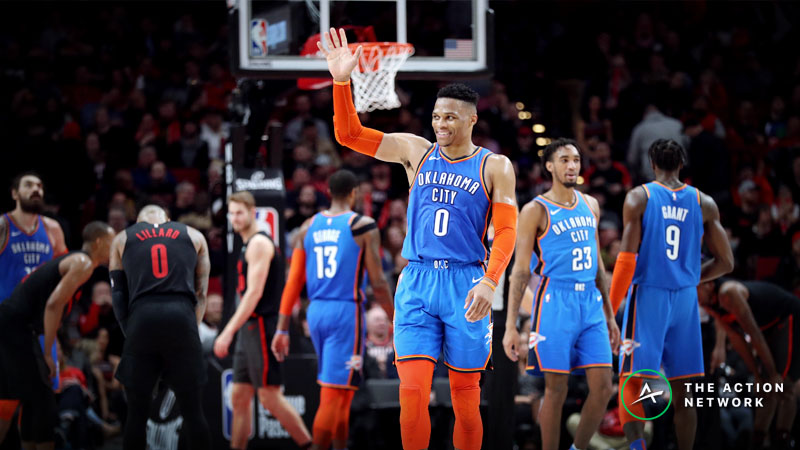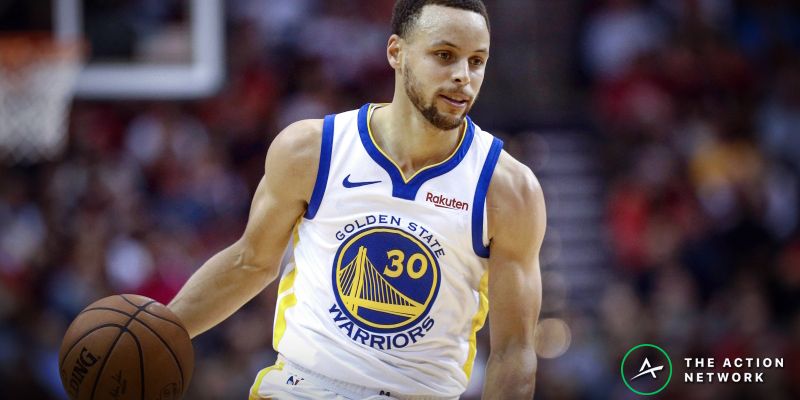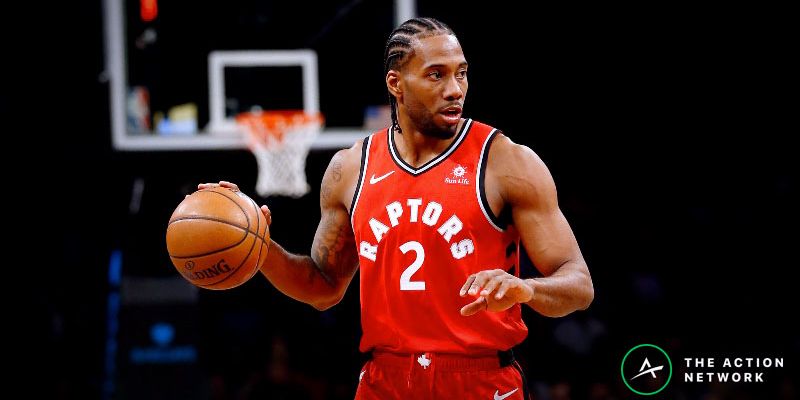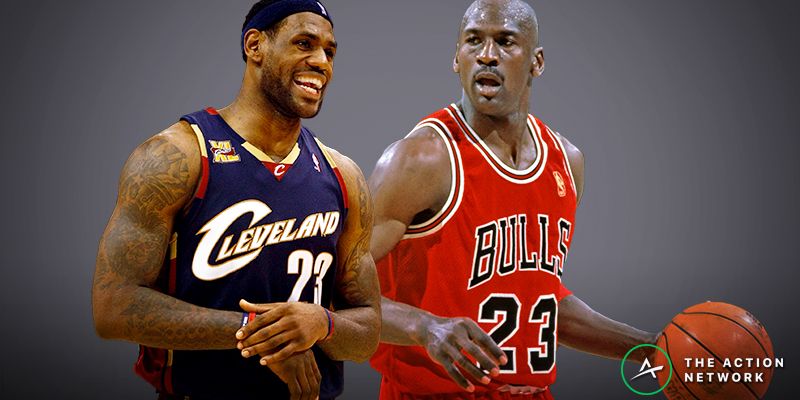Locky’s NBA Playoff Preview: First Round Predictive Trends and Picks
Jaime Valdez-USA TODAY Sports. Pictured: Oklahoma City Thunder guard Russell Westbrook (0).
- The first round of the NBA playoffs doesn't often feature much drama, but there are still plenty of worthwhile bets on the board.
- Ken Barkley uses advanced metrics from the past 10 NBA postseasons to determine value on series prices.
The NBA Playoffs and the Stanley Cup Playoffs occur simultaneously, and yet they really couldn't have less in common. Understanding that will help us in our quest to find value on these series.
On the opening night of the Stanley Cup Playoffs, the top overall seed, who broke records in the regular season (think: Warriors), was up 3-0, gave up four unanswered goals and lost the game. The top seed is now in some jeopardy of losing the series as a result.
At the same time that was happening, several one-goal contests were taking place across North America, where small bounces here or there determined winners and, perhaps ultimately, a future champion.
In the NBA, there will be no such drama. This is where you see a team -20000 to win a series, and you don't bat an eye. Just another year of NBA playoff basketball. It's a sport designed so that the best teams make it to the end, which often delays the biggest drama in the sport until the latest possible moment.
Sure, there's drama along the way, but it's more like drama to see who comes in fifth, or eighth, or whatever, until we get to late May. The good news is, we can still bet on a whole bunch of things between now and then.
I'm going to reference some trends in this piece, and I'll just iterate from the beginning that I chose 10 years as a reasonable sample. That's 80 first-round series. I think there's enough there that we can at least draw out some idea of how this round works, when things are valuable, and when they aren't, on a very general level.
Here are some thoughts on each first-round series
All prices are current as of 8 p.m. ET on April 11; all references to efficiencies and other statistics come from Cleaning the Glass
Eastern Conference
No. 1 Milwaukee (-5000) vs No. 8 Detroit (+2500)
Not a lot to say here, really. I mean … it's a -5000 favorite. But I will talk about one tool we're going to be using a lot.
As it turns out, in the NBA (as opposed to so many other sports), the difference in the quality of the teams over the course of the season is a very strong predictor of how long their playoff series will go. In the NHL, sometimes closely matched teams go to seven games, but sometimes very mismatched teams do too, and it's about the same frequency either way.
There's no rhyme or reason to how long the series goes. In baseball it's much more about who is the hot team at that particular time rather than over the course of the season, so the same level of unpredictability applies. But not the NBA!
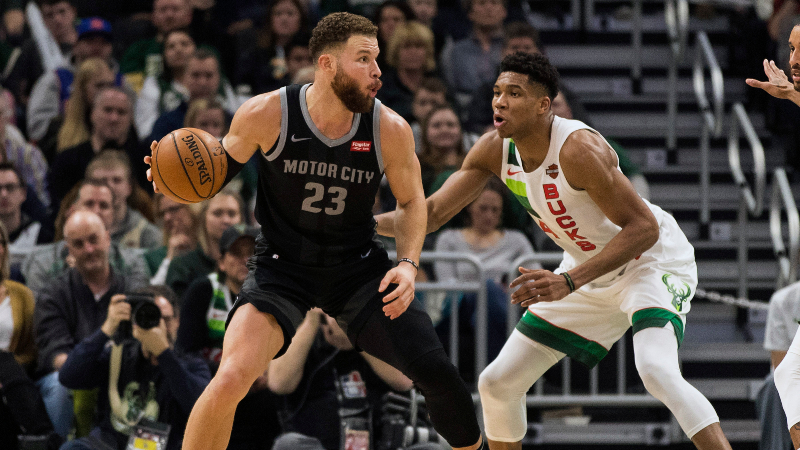
The difference in Pythagorean win-expectancy between two teams (and a few other stats) actually explains a good amount of the variance in how long the series goes.
So if teams are a total mismatch (like these two teams with a staggering Pythagorean difference of 20.9 wins), a sweep is MUCH more likely to occur.
The bad news? A sweep is going to be lined as the most likely outcome, with Bucks in 5 as the second choice.
And that's correct. There's nothing else to really say about it.
Advice: Pass
No. 4 Boston (-450) vs No. 5 Indiana (+360)
There's a lot going on here.
The biggest problem is that season-long metrics don't work at all. Victor Oladipo's absence looms over Indiana more than any other injury in the playoffs (unless Joel Embiid's situation becomes more dire over the next couple games).
The Pacers were simply not good without him, posting the 23rd best offensive efficiency and the 11th best defensive efficiency in those games. Their Pythagorean win expectancy over a full season with those stats is 37.9. That's not really a playoff team, even in the East.
And that's really who the Celtics are playing. A 38-win team. So even though Marcus Smart is injured and the Celtics have been riddled with problems all season long, their advantage here is massive. It's easy to remember the Pacers giving LeBron James a hard time last year, but that's not what's going on here. Aside from the name of the team, there's almost nothing similar.
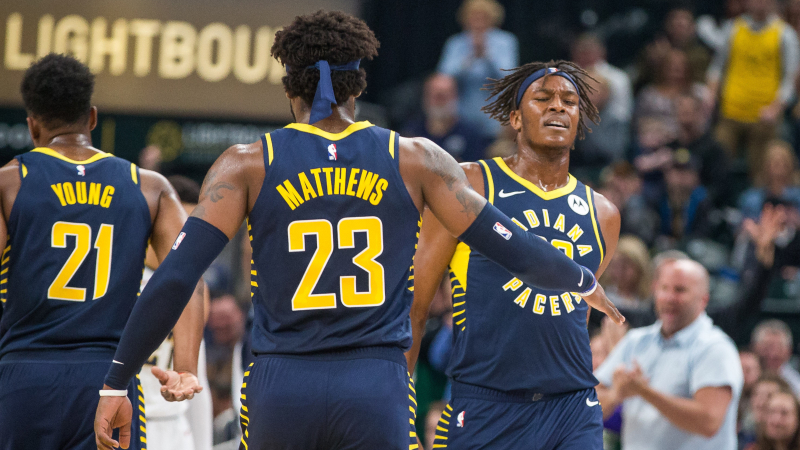
Typically, a match-up with the season-long profiles of these teams would produce a "true" price that's much, much closer, but when you use just Indiana's post-Feb. 1 metrics, the Celtics price is actually short here, in my opinion.
I don't love laying -450, but consider things this way: in the past 10 years, there have been 18 first-round favorites between -300 and -600 (the Celtics current price being in the middle). Those teams are 16-2, and in my opinion Indiana has the worst team profile-wise to be an underdog in this type of priced series over that time.
I will be laying -450 here, and may play Celtics in five when I have a better idea what the market prices are for such an outcome. This is a blowout being masked as a close series because of the two versions of Indiana.
Advice: Boston -450 / Boston in 5 (depending on price)
No. 3 Philadelphia (-580) vs No. 6 Brooklyn (+440)
If you use the post-Oladipo version of Indiana and match them up with Boston, you actually get a much wider talent disparity than this series, yet this series is lined as a bigger mismatch.
Just a 7.1-win difference Pythagorean-wise between these teams, and I have Sixers in six as the most likely outcome. Of the four first-round series in the East, this is the one I project to go the longest.
There is a chance for things to get feisty and valuable here for Brooklyn, for a few reasons. Embiid's health for the series has now been called into question. Brooklyn played well against Philadelphia in the regular season. And price-wise, the 76ers are being inflated because of their reputation, what they accomplished last year, and their star power compared to the Nets.
I don't hate taking a shot here with Brooklyn +440, but I think I'd rather just make a smaller bet on them +1.5 or +2 games, depending on prices when those markets open, with the Nets keeping it closer than the market most likely expects.
Advice: Brooklyn +1.5/+2 games (shop around for best price)
No. 2 Toronto (-1150) vs No. 7 Orlando (+738)
This seems like a good time to pivot to another topic: the concept of the "hot" team. The team that won all its games down the stretch, fighting for that playoff spot, and can now be a tough out in the first round.
Well, I can't really find data to support that at all. Second half wins, Pythagorean expectancy, efficiencies, win shares, ratings, etc. None of them really point to the idea that if you closed strong, you have an edge compared to the market.
Sorry, Orlando, you're actually supposed to be this big of an underdog.
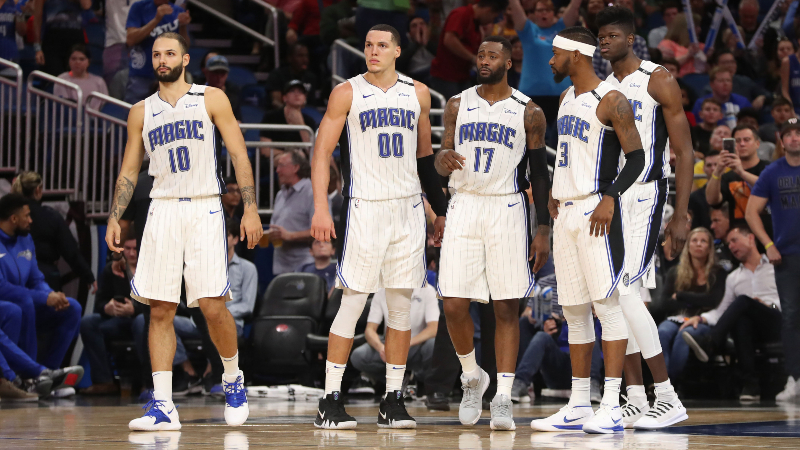
These teams have a 12.4 Pythagorean win difference, the third-highest difference in the first round (second-highest if you use Indiana's full-season, which I did not). When a team has a 10-plus advantage in this area, it is 36-3 in the first round in the past 10 years.
So yeah, Toronto -1150 makes sense. Toronto in five is the most likely series outcome in my opinion, but none of these opinions are different than the market.
Advice: Pass
Western Conference
No. 1 Golden State (-20000) vs No. 8 LA Clippers (+7500)
Let's save some space in this piece. This projects to be Warriors-in-five a lot of the time, and sometimes it's a sweep.
I make the series length an average of 5.2, so if you really want to give the Clippers credit for being feisty you could play them +2.5 games or the series to go over 5.5, both of which are most likely going to fetch a good price. But I am not doing so.
Advice: Pass
No. 4 Houston (-330) vs No. 5 Utah (+270)
Our first truly interesting first-round series. Why is it so interesting? Because Utah is a better team than Houston. The Jazz had better numbers, a higher win expectancy, and played better than the Rockets the second half of the season. Utah is better than Houston. And yet, the Rockets have home-court in the series and are -330.
When a favored team has a worse Pythagorean win expectancy than their opponent the past 10 years, they are 4-4. Interestingly, all eight series went either six or seven games. Basically, the better talent of one team met the home-court of another, and evened things out, if you want to think of it that way. Houston is a -5.1 here in win expectancy.
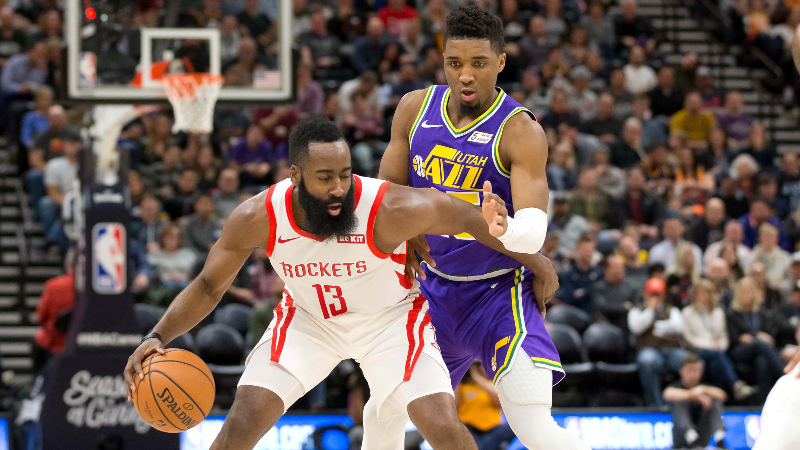
The Rockets have the stars, a strong MVP candidate, and the reputation of nearly making the finals last year, which may be inflating their price. In reality, they are worse than last year's team, and specifically worse defensively, with Trevor Ariza (and even Luc Mbah a Moute) gone, and P.J. Tucker a year older.
Can Utah find a way to score more in this series than they did last postseason? I don't know, but I think of all the first-round series this is the one I'd be most confident going the distance. I have the average length of this series at 6.35 games, the longest of any series this round.
Advice: Over 5.5/6 game props should be bet, as should Utah +1/1.5 games (which is probably going to be a great price as a derivative given the mis-pricing of the series overall). Houston in exactly seven isn't bad if you want a fun ticket that won't hit as often.
No. 3 Portland (+120) vs No. 6 Oklahoma City (-140)
Another series that may end up going the distance (average length by my calculation: 6.043 games).
Why are the Thunder getting this much credit? They had a slightly worse win expectancy, Paul George may be playing with zero functional shoulders, and the Blazers have home court. I'm not saying Portland should be favored, but I think plus-money on either side is a +EV bet in this series. Since that happens to rest with Portland currently, that would be my recommendation.
If Portland happens to win Game 1 at home and you don't wanna sweat it any more because George looks better than you thought, you can always buy out with OKC -plusmoney to win the series afterwards and call it a day, profit locked up.
Advice: Portland +120
No. 2 Denver (-245) vs No. 7 San Antonio (+205)
No one on Earth knows whether you can trust Denver. I am really at a loss in this series, as a result. This actually lined pretty close to what I had. The Nuggets have a small win-expectancy advantage and home-court, but at the same time, they have no playoff experience and face the model of consistency in the sport.
I would not blame you for taking a shot with San Antonio +205 here, because how can we have any idea what to expect from the Nuggets? If they're really an unknown, and I get +205 with Gregg Popovich, can that really be so bad? Purely from a numbers standpoint, though, this is close enough that I wouldn't recommend doing anything.
Advice: Pass
How would you rate this article?

